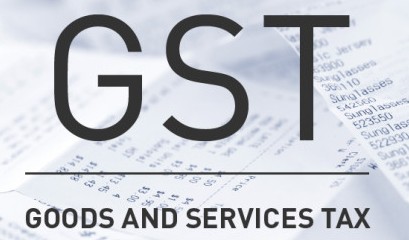

Support GST, Not Rubbish It
When GST was introduced some months ago, the opposition parties said that it was done in haste and without proper deliberations. The government acknowledged as much but added that since it was work-in-progress, actual implementation needed to be done to iron out deficiencies. It pointed out that the GST Council was truly federal as it comprised of finance ministers of all states. This meant that the Congress was also represented in the council through the finance ministers of states ruled by it, notably Karnataka. Hence, whatever differences the party had over GST could have been highlighted by the Karnataka finance minister in GST Council meetings. But the Congress has adopted a mischievous approach over GST implementation by allowing its party minister to support initiatives in the council and rubbish them on the street.By Sunil Garodia
First publised on 2017-11-15 21:22:46
It is a measure of good governance that the GST Council is so receptive to feedback from traders, industry and the public at large that it has done large scale changes in rate slabs and processes to ease the burden on both the common man and the taxpayers. But the Congress is not satisfied with this. P Chidambaram has said that this is due to the ensuing elections in Gujarat. But isnt the council made up of finance ministers all over India? Then how can Gujarat alone influence such a huge decision? Perhaps, the Congress used to function that way. It never gave a damn about what the public thought. When we have a government that listens to market feedback and reorients policies accordingly, we should applaud instead of rubbishing the fact.
But the Congress is frustrated by the fact that Modi is fine-tuning and implementing most reforms pioneered by the party but left incomplete as it was weighed down by total policy paralysis and massive scams in the second term of the UPA. Manmohan Singh as PM and Chidambaram as FM could not make the killer-jodi they would have hoped for as others around them did nothing right. Even Singh was kept on a tight leash by the party president. Hence, the party is now wringing its hands over the ease with which Modi is pushing reforms to make India a better place to do business in. It can do little apart from accusing the government of being tied up with suit-boot wallahs (a charge which is obviously not correct as Modi has done more to transfer subsidies directly to the needy and eliminate middlemen than Congress ever did. The Congress always let crony capitalists flourish as its ministers always had a hand in the jar).
GST is going to change the way India does business. The people who are most against GST are the one who conducted business by avoiding the legal channels. Cloth merchants, gold and diamond merchants, real estate barons and other biggies from the unorganized sector have been hit hard by the GST which makes them upload purchase and sales invoices in order to get input benefits. They always bought majorly in cash and sold partly in cash to cover the cash purchases, avoiding tax on both sides and encouraging the growth of the parallel economy. The common refrain one has heard from businessmen all over India on a recent tour is how will I manage my kutcha expenses if I show everything in white. These are the people who loot the nation by not paying taxes. These are also the people who curse the government when their BMW falls in a pothole. The suit-boot wallahs are abusing Modi, yet Congress says demonetization was to protect moneybags and Modi is aligned with big industrialists?
The good and simple tax is stabilizing now. It will further stabilize when returns for a couple of more quarters are filed. The GST Council is receptive to feedback. Its federal structure makes it an inclusive body. The need for other political parties is to support GST. Instead of rubbishing the tax as a whole, they can point out anomalies for the council to redress the grievances. Even a child falls many times before learning to walk. No tax can be said to be free from anomalies from day one of its implementation. All taxes have had numerous amendments since they had been implemented. Amendments do not mean that the tax was hastily or incorrectly implemented. They just show that problems were identified after implementation and they are being addressed through the amendments. The GST has more problems than other taxes simply because of its scope and dimension. They will be identified and rectified, sooner rather than later. GST will transform Indian business in the next six months. Then, the naysayers will have to eat their words.











